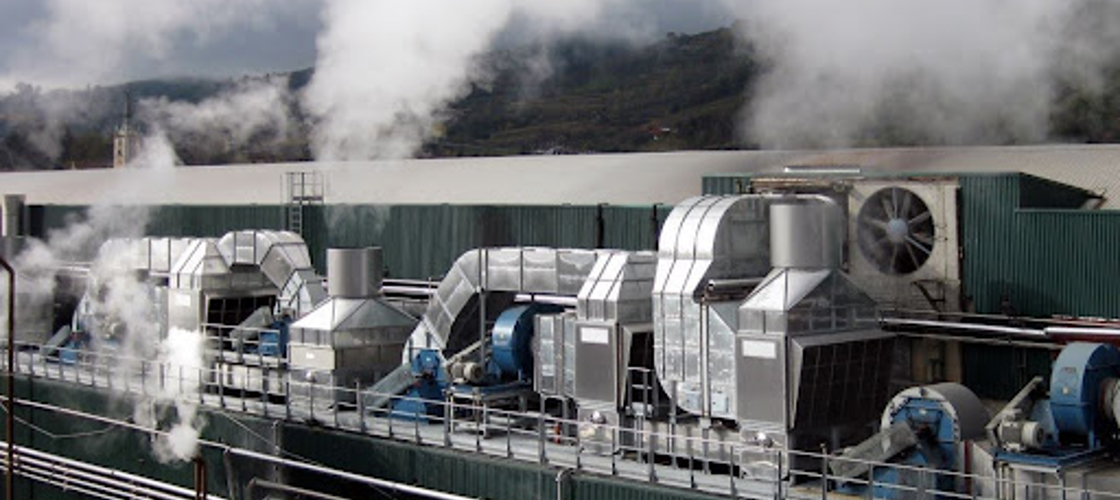Fan Insulation: How to insulate ad Industrial Fan

Effective fan insulation enhances energy efficiency, reduces noise, and extends the lifespan of industrial fans. This guide explores the types, benefits, and integration of fan insulation, with a focus on optimising CBI’s centrifugal fans.
Key points of the article:
- Understanding the Role of Fan Insulation
- Types of Insulation Materials and Their Applications
- Benefits: Noise and Temperature Reduction
- Integrating Insulation with CBI's Centrifugal Fans
- Application Sectors for Insulated Industrial Fans
- Best Practices for Fan Insulation
Understanding the Role of Fan Insulation
In industrial environments, fan insulation is crucial for minimising acoustic emissions and preventing heat loss. Centrifugal and axial fans used in sectors like HVAC, manufacturing, power plants, or cleanrooms can emit high noise levels due to airflow turbulence, structural vibrations, and mechanical components.
Insulation materials applied to fan casings or ducts help to:
- Absorb sound waves (using high-density materials like rock wool)
- Dampen mechanical vibrations
These functions not only reduce decibel levels but also optimise thermal efficiency, preventing unnecessary heat dispersion into the environment.
Looking for reliable, factory-insulated fans?
Contact our technical team to configure your custom CBI solution and reduce installation time and operational noise.
Contact us
Types of Insulation Materials and Their Applications
Two main insulation systems are used in industrial fan applications, particularly with CBI’s series of centrifugal fans:
Type 1: Standard Acoustic and Thermal Insulation
- Material: thick rock wool
- Density: variable from standard 80 kg/m³
- External Protection: Galvanised steel or aluminium sheet (0.8–1 mm thick) or AISI upon request
- Noise Attenuation Performance
Type 2: High-Performance Acoustic Insulation
- Material: Same rock wool layer + EPDM membrane
- External Protection: As above
- Superior Attenuation:
-
-
Ideal for installations requiring maximum noise suppression
-
These materials are integrated into the fan casing at the factory level, ensuring performance consistency and eliminating the need for costly on-site insulation work. CBI can work with fans from other brands as well.
Benefits: Noise and Temperature Reduction
The advantages of insulating industrial fans are both functional and operational:
Noise Reduction
-
Lower sound pressure levels (LPA) even in reverberant environments
-
Effective damping of frequencies from 63 Hz to 8000 Hz
Temperature Regulation
-
Minimises energy loss by retaining heat inside the duct system
-
Prevents condensation, especially in HVAC or humid environments
-
Supports operation in conditions up to 800°C
Operational Savings
-
Reduced installation time and cost
-
Longer fan life
-
Improves workplace safety and comfort
Application Sectors for Insulated Industrial Fans
CBI’s insulated centrifugal fans are suited for a wide range of industrial applications where noise control, thermal efficiency and durability are essential. Key sectors include:
- Cement plants
- Glass manufacturing
- Chemical processing
- Power stations
- Steelworks
- Incineration facilities
- Paint booths
- Ceramic industry
- Paper mills
- Industrial kilns and ovens
- Waste treatment plants
- Marine systems
- Boilers
- Galvanic plants
- Coal production and zinc coating
These sectors often present harsh conditions such as high temperatures, particulate-laden air, and strict acoustic requirements — all of which are effectively addressed by pre-insulated fan solutions.
Integrating Insulation with CBI’s Centrifugal Fans – More Cost-Efficient Than On-Site Insulation

Why choose factory-integrated insulation from CBI?
- Precision fitting ensures no air gaps or material displacement
- Reduces risk of installation errors and rework
- Six types of insulation available upon request
- Ideal for demanding environments: cement plants, power stations, paint booths, waste treatment, etc.
CBI fans are also tested to ISO balancing standards (G=2.5) and operate with efficiencies up to 92%, making them perfect for both standard and specialised industrial use.
Best Practices for Fan Insulation
When insulating an industrial fan, follow these best practices:
-
Choose the correct insulation type based on the environment and noise level and temperature targets.
-
Ensure installation includes vibration isolators.
-
Position fans at adequate distances from sensitive areas to reduce sound propagation.
In conclusion, fan insulation is essential for industrial efficiency, safety, and regulatory compliance. CBI’s insulated centrifugal fans offer a turnkey solution for noise and thermal control, saving time and cost during installation.
Ready to upgrade your fan insulation strategy?
Discover how CBI’s pre-insulated centrifugal fans can transform your next project. Request a quote today or book a consultation with one of our specialists.
Request
